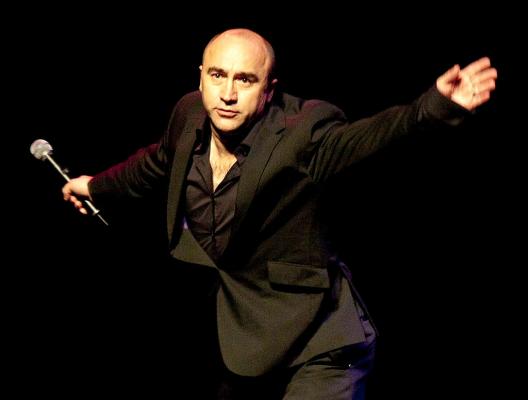⌚︎ 3 min.


Learning resource
Forum theatre for tolerance
Students create a scenario for a play based on a potential conflict and try to resolve the conflict through the play.
Proposal for use
Prevention of radicalisation
Target group
Age 12-25
Pedagogical method
Simulation
Objectives
- Empowerment of learners by letting them resolve their own problems.
- Development of the ability for problem solving by imagining better group situations.
- Detecting problems within a group, and between a victim and an abuser in a situation.
- Actively solve real problems in the lives of learners, reacting to social injustice and oppression.
Description
The process includes a workshop to prepare the play, followed by a performance.
The Theatre Forum workshop (2h) is a three-stage process:
- Warm-up games and activities: the educator can choose an activity relating to the senses, for the participants to relax, focus and feel confident inside the group, for example, a short relaxation session with soft ambient music (students sitting in a circle with eyes closed while the facilitator tells a story they have to recreate in their minds).
- Writing down the plot: once the group is focused, the facilitator asks to share an experience of oppression, identifying both the oppressed and the oppressor. The texts will be written collectively based on real-life stories of the participants, concerning issues such as discrimination, prejudice, work, unemployment, violence... The following questions can help to define the play: “What does the protagonist (oppressed) want to achieve?” The group must define what the protagonist wants, so that later on the problems faced are identified. “What is the obstacle that makes the oppressed fail in achieving his goal?” All those difficulties will be expressed by the actors. “What are the possible solutions?” Possible solutions to the problem should be defined before the play is performed so as to make sure that the public reaches similar conclusions.
- Choosing actors and rehearsing: after choosing the situations that will be represented, the performance process starts. The play must be constructed with the help of a mediator. Actors are selected and rehearse the play (at least one week recommended). A non-ideal situation is represented. The play is based on a conflict between the protagonist (oppressed) and the antagonist (oppressor).
The Theatre Forum performance (2h) is divided into three stages:
- Warming up the public. Relaxing activities can be implemented.
- Performance. The performance is carried out as a traditional theatre show in which the audience remains passive.
- Forum. The facilitator initiates a discussion with the audience. The play is performed again but this time the audience takes an active role trying to solve the identified problems that stopped the oppressed character from achieving his goal. They can stop the play and take part in it as actors following certain rules, explained by the facilitator:
- If a spectator wants to take part they have to say “Stop” and tell which character they want to substitute. The other actors need to improvise according to what the new actor says.
- During this second performance the facilitator can intervene and discuss with the audience how feasible the alternatives proposed are.
- The audience will define the end of the story.
The facilitator should follow some rules:
- avoid influencing the spectators’ opinion or reaching any conclusion that is not obvious.
- you cannot decide anything unilaterally; only explain the rules; you must accept any change in the rules suggested by the audience.
- ask the spectators for directions if the plot reaches a confusing point.
The facilitator's body language is extremely important as he/she is a visible character (even if he/she does not act). If the facilitator is tired, the audience will feel the same. On the contrary, if the facilitator is energetic, the audience is more likely to take an active part in the play.
Human and material resources
- One facilitator who energizes the play.
- Scenography based on recycled resources, costumes for each character, lights, music devices...
- An empty room.
Evaluation of the learning process
The process can be evaluated by checking the following aspects:
- Was the play performed in such a way that the audience understood the story/plot?
- Did the viewers intervene in the process (durng the play)?
- Did the viewers arrive to any conclusions during the discussion that followed?
File(s)
What is Forum Theater98.41 KB
Type
Workshops
Pedagogical modalities
Collaborative activity
Use in group
Number of participants
10-30
Duration
2 X 2h
Cost
None
Creators
Escuelas Profesionales Padre Piquer
Date of creation
Copyright
CC BY
Language(s) available
Spanish
English
French
Slovenian
Portuguese, Portugal
German
Romanian
Italian
Dutch
Keywords
Human Rights Education
Theatre workshop
Theatre of the oppressed
Art
Youth empowerement
Conflict
